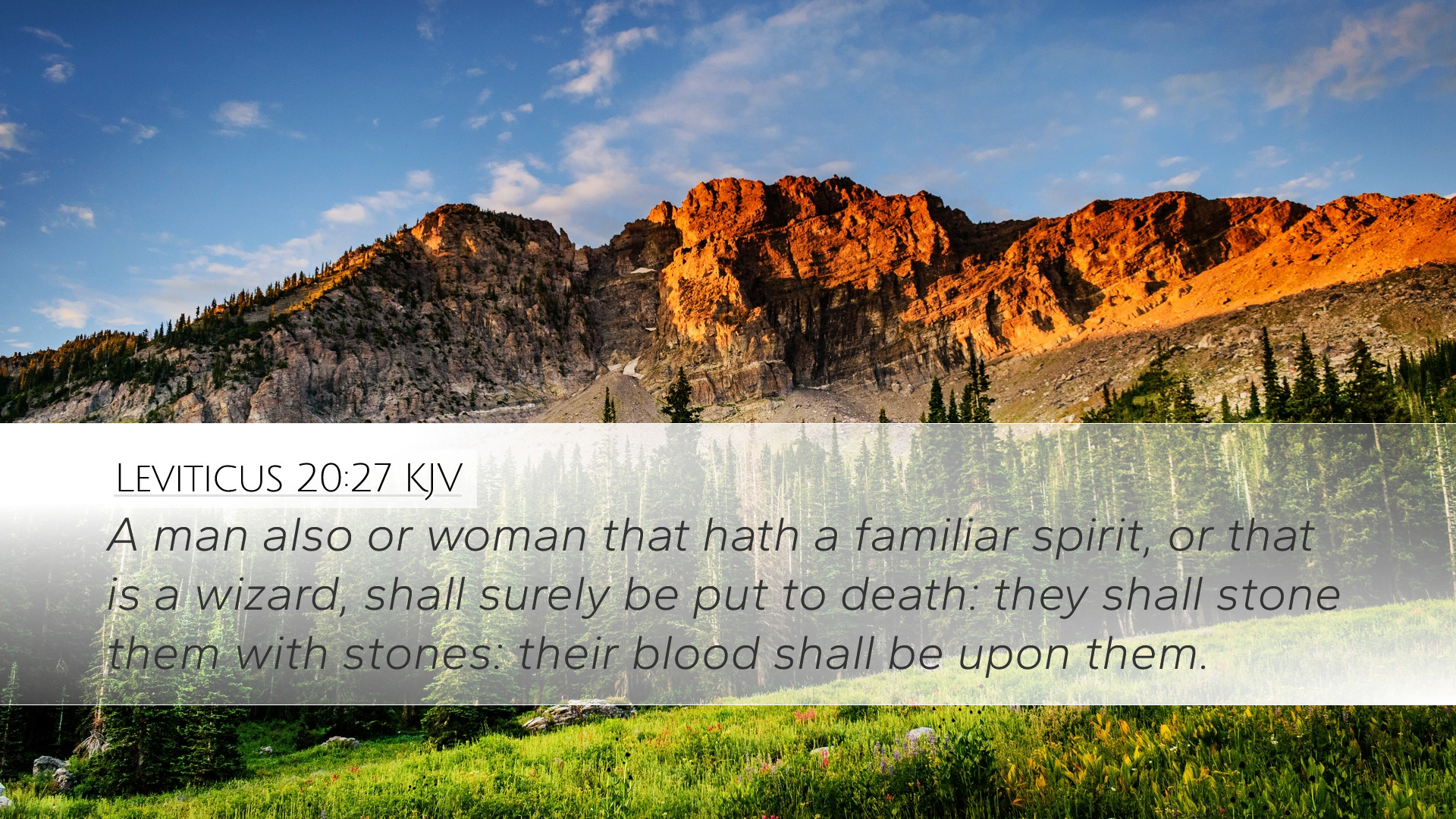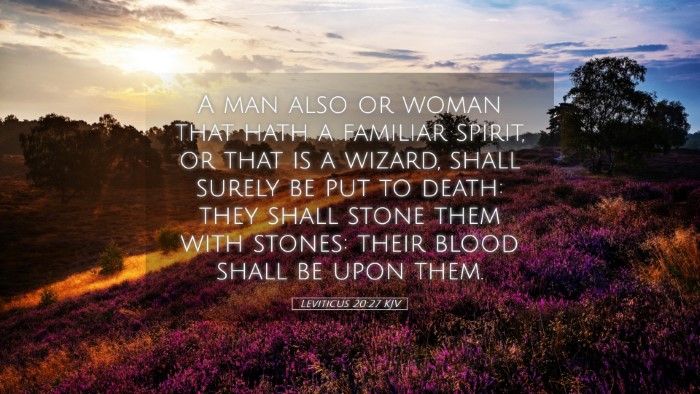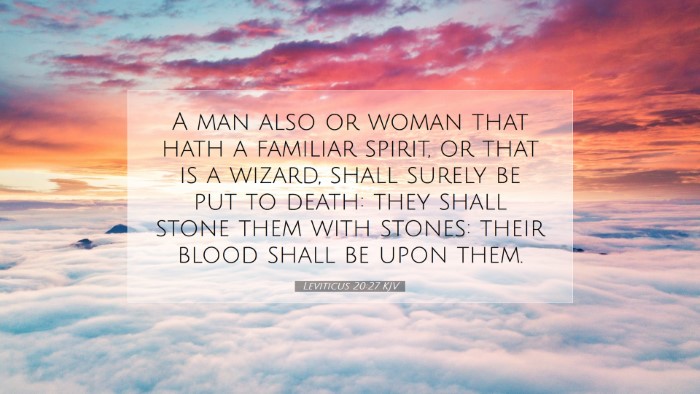Commentary on Leviticus 20:27
Bible Verse: "A man also or woman that hath a familiar spirit, or that is a wizard, shall surely be put to death: they shall stone them with stones: their blood shall be upon them."
Introduction
The verse under consideration is part of the holiness code found in Leviticus, which outlines various laws aimed at maintaining the moral and spiritual purity of the Israelite community. Leviticus 20:27 specifically addresses the serious offenses of engaging with familiar spirits and wizardry, reflecting the stringent measures taken against practices seen as abominable in the eyes of God.
The Context of Leviticus 20
In Leviticus 20, the chapter discusses various punishments prescribed for transgressions that led to communal defilement. The Israelites are urged to maintain separation from the practices of surrounding nations, which often included occult activities. This chapter emphasizes God's desire for holiness among His people.
Interpretation and Meaning
Matthew Henry, in his commentary, draws attention to the severe prohibition against witchcraft and necromancy, indicating that these practices undermine the sovereignty of God. Engaging with familiar spirits is seen as a direct affront to the worship of God, suggesting a reliance on powers other than Him.
Albert Barnes expands on the concept of "familiar spirits" as entities that are invoked for guidance or divination, a practice commonly employed in pagan religions. He emphasizes the danger these practices pose, not only in spiritual defiance but also in leading the people away from their covenant with God.
Adam Clarke highlights the severe penalty of death for those involved in witchcraft, asserting that such extreme measures reflect the gravity with which God regards occult practices. Clarke infers that this was meant to preserve the integrity of the community and prevent the inherent risks of allowing such practices to take root among God's people.
Theological Implications
The call for capital punishment in this verse can be shocking to modern readers, but it serves to illustrate God's holiness and the seriousness with which He views idolatry and the occult. The decree was upon the community to ensure that God’s presence remained among them, which is critical for understanding the broader covenantal relationship He maintained with Israel.
Separation and Holiness
Those who dabble in the supernatural through mediums or witches represent a fundamental breach of trust in God’s providence and guidance. The aim of such legislation was not just punitive but corrective; to rehabilitate the community back towards divine reliance and away from harmful and deceptive practices.
Application for Today
While the context of the Old Testament ceremonial and civil law differs from that of the New Testament, the underlying principles remain relevant. Today, the church is still called to maintain spiritual discernment against influences that may divert focus from Christ.
Many modern believers may encounter situations involving occult practices or new age beliefs, urging contemporary Christians to apply vigilance and education regarding the dangers of such practices. The biblical emphasis on seeking the Lord's counsel through prayer and scripture should guide believers in their spiritual journeys.
Conclusion
Leviticus 20:27 acts as a stark reminder of the importance of faithful adherence to God’s commands, urging the community to reject all forms of divination and to safeguard their collective spiritual integrity. This calls pastors and theologians to teach on the importance of holiness, urging congregants to seek God’s wisdom above all else.
- Total Dependence on God: Seek divine guidance in every matter, avoiding detours to spiritual practices that are misguided.
- Call to Holiness: Embrace the call to be set apart, reflecting God’s character in an unholy world.
- Educational Responsibility: Equip the church with knowledge about the dangers of occult practices, reinforcing the message of God’s supremacy.
This text not only serves as a historical admonition but as an evergreen call for vigilance against the subtle encroachments of cultural practices that threaten to dilute the holiness the church is called to uphold.


